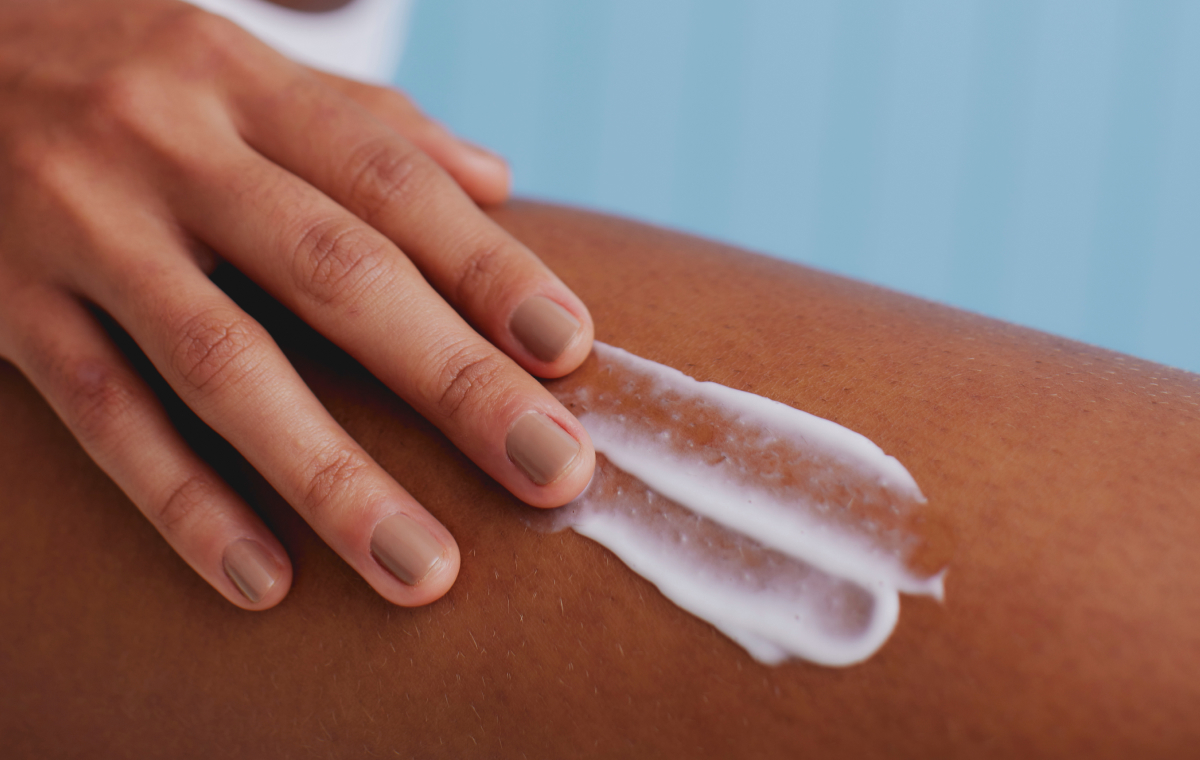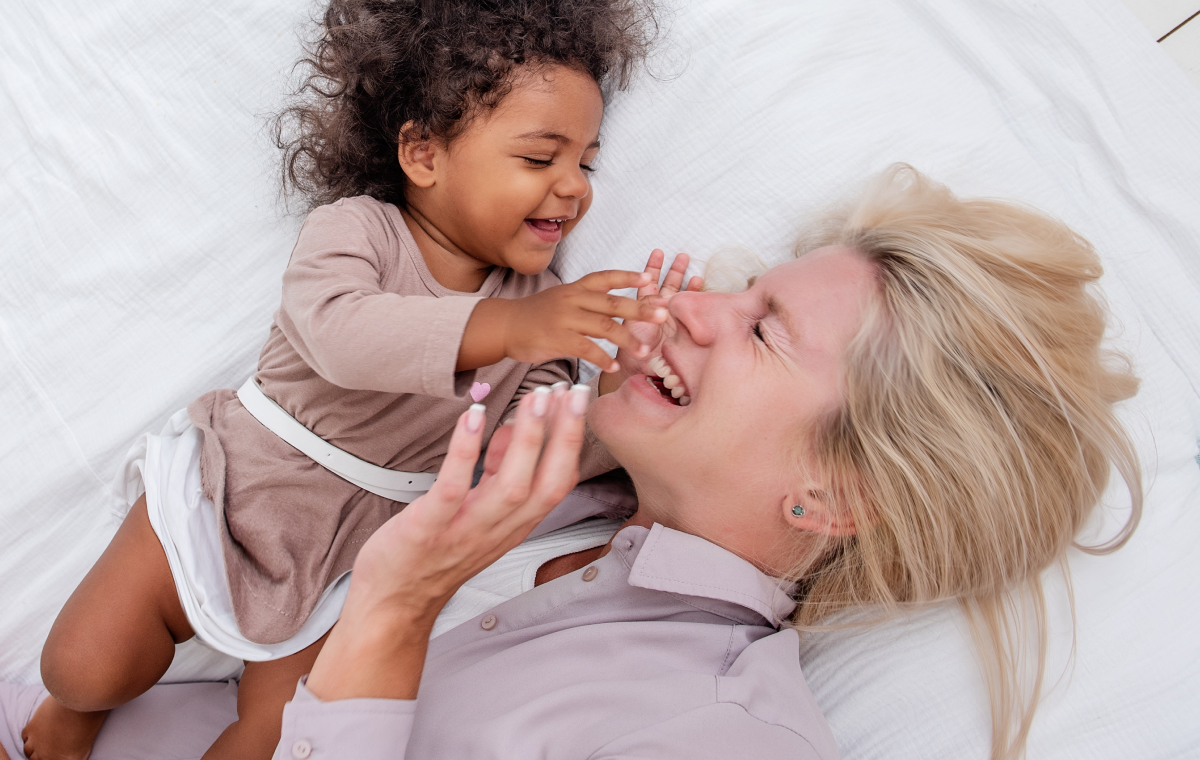Noticing some changes in your skin as summer approaches? Discover a few simple ways you can ensure it’s at its best before the season’s in full swing.

Noticing some changes in your skin as summer approaches? Discover a few simple ways you can ensure it’s at its best before the season’s in full swing.
Over 80% of melanoma cases can be prevented. We’ve teamed up with leading dermatologist Dr. Susana Puig and the RDK Melanoma Foundation to share guidance that you can depend on.

Celebrate the mom-figures in your life with these Mother’s Day skincare gift ideas. Let them know how much they mean to you with the gift of self-care!
We caught up with Alessandro De Luca, Medical Affairs Specialist at ISDIN, to clarify fact versus fiction about mineral versus chemical.
Are acrylic nails bad for you? How often do you need to take a break from acrylics? We’re answering these questions and more. Let’s get started.
Not all sunscreens are the same. Some go further, featuring ingredients that enhance their protective benefits, such as antioxidants. Ready to find out more?

Let’s take a closer look at what happens to your skin during a flight and explore some science-backed tips to protect and nourish your skin.
Learn more about these two fan-favorite sunscreens, including which characteristics they share and which set them apart.
Let’s explore how different weather and environments affect your skin—and how to adapt your skincare routine to match.

Along with our experts, we’re uncovering three powerful ways the sun can improve your physical and emotional health. Ready?
✨ Sharing the MAGIC in ATL! ✨
We had an incredible time celebrating the launch of Fusion Water MAGIC with the amazing team at @dermatologyconsultants in Atlanta.
From skin science to sun care, it was all about SPF with added skincare benefits—lightweight, invisible 360° protection packed with hydration 💧💙
A big thanks to our partners for helping us spread the sun-safe love! #FusionWaterMagic #ISDINUSA #DermRecommended
May 8

✨ Sharing the MAGIC in ATL! ✨
We had an incredible time celebrating the launch of Fusion Water MAGIC with the amazing team at @dermatologyconsultants in Atlanta.
From skin science to sun care, it was all about SPF with added skincare benefits—lightweight, invisible 360° protection packed with hydration 💧💙
A big thanks to our partners for helping us spread the sun-safe love! #FusionWaterMagic #ISDINUSA #DermRecommended
It’s Melanoma Monday—a moment to reflect and take action 💪
Through our ongoing collaboration with the Richard David Kann Melanoma Foundation, we’re on a mission to inspire a future without skin cancer... and we want you to be a part of the movement!
Here’s how you can help make our dream of #NoMoreMelanoma a reality 👇
1️⃣ Prioritize sun safety: use sunscreen every day, plus a 🧢 and 🕶️ outdoors
2️⃣ Do regular self-exams & check in with your dermatologist yearly
3️⃣ Support skin cancer awareness and melanoma research with @rdkmelanomafoundation — 250 LOVE ISDIN points = $1 donated.
Sign in to LOVE ISDIN to find out more! And thanks for loving & protecting your skin, today and every day 🩷
#MelanomaAwarenessMonth #SkinCheck #ISDINUSA #RDKFoundation
May 5

It’s Melanoma Monday—a moment to reflect and take action 💪
Through our ongoing collaboration with the Richard David Kann Melanoma Foundation, we’re on a mission to inspire a future without skin cancer... and we want you to be a part of the movement!
Here’s how you can help make our dream of #NoMoreMelanoma a reality 👇
1️⃣ Prioritize sun safety: use sunscreen every day, plus a 🧢 and 🕶️ outdoors
2️⃣ Do regular self-exams & check in with your dermatologist yearly
3️⃣ Support skin cancer awareness and melanoma research with @rdkmelanomafoundation — 250 LOVE ISDIN points = $1 donated.
Sign in to LOVE ISDIN to find out more! And thanks for loving & protecting your skin, today and every day 🩷
#MelanomaAwarenessMonth #SkinCheck #ISDINUSA #RDKFoundation
✨ The best days? The ones when you get it on—your sunscreen, that is 😉
@samanthaarandazzo does it daily with Fusion Water MAGIC because of its “360-degree protection that blends out like a dream” 🫶 #ISDINGetItOn
May 3

✨ The best days? The ones when you get it on—your sunscreen, that is 😉
@samanthaarandazzo does it daily with Fusion Water MAGIC because of its “360-degree protection that blends out like a dream” 🫶 #ISDINGetItOn
✨ GIVEAWAY TIME: A YEAR OF MAGIC! ✨
Celebrate a Year of Fusion Water Magic — the sunscreen you’ll want to Get It On Daily! 🌞
We’re giving one lucky winner a full YEAR of glowing, hydrated, protected skin! 💧🛡️
Here’s how to enter:
✔️ Follow us @isdinusa
✔️ Like and Save this post
✔️ Comment why you’d love a year of magic and tag a friend who would love it too!
Good luck — your daily magic awaits! 🍀🤩
#ISDINGetItOn
May 1

✨ GIVEAWAY TIME: A YEAR OF MAGIC! ✨
Celebrate a Year of Fusion Water Magic — the sunscreen you’ll want to Get It On Daily! 🌞
We’re giving one lucky winner a full YEAR of glowing, hydrated, protected skin! 💧🛡️
Here’s how to enter:
✔️ Follow us @isdinusa
✔️ Like and Save this post
✔️ Comment why you’d love a year of magic and tag a friend who would love it too!
Good luck — your daily magic awaits! 🍀🤩
#ISDINGetItOn
@prettylittlefawn says, “The best days begin when you get it on” & we couldn’t agree more. Start your day with getting on Fusion Water Magic, every day🌞🌦️🌧️
#ISDINGetItOn
Apr 29

@prettylittlefawn says, “The best days begin when you get it on” & we couldn’t agree more. Start your day with getting on Fusion Water Magic, every day🌞🌦️🌧️
#ISDINGetItOn
@alysialoo and everyone’s new favorite morning ritual—every single day. 💧
Fusion Water Magic isn’t just sunscreen; it’s your skin’s new best friend. This staple has 360° protection against UV, pollution, blue light, infrared and heat damage, plus hydration from hyaluronic acid. No white cast, no pilling - just pure magic.
Get it on. Every. Single. Day.
#ISDINGetItOn
Apr 26

@alysialoo and everyone’s new favorite morning ritual—every single day. 💧
Fusion Water Magic isn’t just sunscreen; it’s your skin’s new best friend. This staple has 360° protection against UV, pollution, blue light, infrared and heat damage, plus hydration from hyaluronic acid. No white cast, no pilling - just pure magic.
Get it on. Every. Single. Day.
#ISDINGetItOn
360° protection, 12- hour hydration, ultra light texture, & invisible coverage. Which benefit makes you get it on daily? #ISDINGetItOn
#ISDIN #GetItOnDaily #SPFeveryday #LoveYourSkin
Apr 25

360° protection, 12- hour hydration, ultra light texture, & invisible coverage. Which benefit makes you get it on daily? #ISDINGetItOn
#ISDIN #GetItOnDaily #SPFeveryday #LoveYourSkin
Find out why Fusion Water MAGIC is a top-selling fan-favorite all over the world! ✨
We’re so excited to finally have it stateside. #ISDINGetItOn
Apr 20

Find out why Fusion Water MAGIC is a top-selling fan-favorite all over the world! ✨
We’re so excited to finally have it stateside. #ISDINGetItOn
We’re still giddy from our launch party 🤩 🎉
Huge shoutout to our ISDIN community for celebrating Fusion Water MAGIC with us! ❤️
Can’t wait for you to try it—get yours on daily💫 #ISDINGetItOn
Apr 18

We’re still giddy from our launch party 🤩 🎉
Huge shoutout to our ISDIN community for celebrating Fusion Water MAGIC with us! ❤️
Can’t wait for you to try it—get yours on daily💫 #ISDINGetItOn
💡Did you know 80% of visible facial aging is from the sun? That’s why wearing sun protection shouldn’t be seasonal - it’s a daily staple. Get it on!
#ISDINGetItOn
Apr 16

💡Did you know 80% of visible facial aging is from the sun? That’s why wearing sun protection shouldn’t be seasonal - it’s a daily staple. Get it on!
#ISDINGetItOn
Fusion Water Magic has officially entered the chat… at Sephora! 💬🤩
We’re beyond excited — the magic of the Mediterranean has landed at Sephora.com and in stores!
Your skin’s new BFF has arrived 💧
#ISDIN #ISDINxSephora #ISDINGetItOn #FusionWaterMagic
Apr 14

Fusion Water Magic has officially entered the chat… at Sephora! 💬🤩
We’re beyond excited — the magic of the Mediterranean has landed at Sephora.com and in stores!
Your skin’s new BFF has arrived 💧
#ISDIN #ISDINxSephora #ISDINGetItOn #FusionWaterMagic
🌞 Get It On Daily 🌞
Sunscreen isn’t just for the beach — it’s a daily essential. Every single day, your skin faces damage from environmental factors — even indoors!
That’s why we want to remind you: Get it on.
A simple step, a powerful habit. FWM’s 360 Protection is a year-round shield:
✨ Sun Protection: Broad Spectrum SPF 40 to guard against UVA/UVB, and blue light.
✨ Free Radical Fighting: Helps protect against free radical damage from pollution, heat, and infrared radiation.
✨ Dryness Defense: Keep your skin hydrated all day with hyaluronic acid.
Glowing, healthy skin starts with protection, so don’t forget to get it on, daily!
#ISDIN #ISDINGetItOn #GetItOnDaily #SPFeveryday #LoveYourSkin
Apr 11

🌞 Get It On Daily 🌞
Sunscreen isn’t just for the beach — it’s a daily essential. Every single day, your skin faces damage from environmental factors — even indoors!
That’s why we want to remind you: Get it on.
A simple step, a powerful habit. FWM’s 360 Protection is a year-round shield:
✨ Sun Protection: Broad Spectrum SPF 40 to guard against UVA/UVB, and blue light.
✨ Free Radical Fighting: Helps protect against free radical damage from pollution, heat, and infrared radiation.
✨ Dryness Defense: Keep your skin hydrated all day with hyaluronic acid.
Glowing, healthy skin starts with protection, so don’t forget to get it on, daily!
#ISDIN #ISDINGetItOn #GetItOnDaily #SPFeveryday #LoveYourSkin
✨ Unveiling the Magic to Get It On Daily...Sunscreen, that is! ✨
We had a magical evening in NYC filled with creativity, inspiration, and excitement, celebrating the launch of our latest innovation in sun protection: Fusion Water Magic. The sunscreen you’ll want to wear every day, because daily protection is key to healthy, beautiful skin.
Our #ISDINGetItOn goal is to make wearing sunscreen a daily habit. With Fusion Water Magic, we’re breaking through the barriers of sun protection by making it easy, effortless, and more enjoyable to protect your skin DAILY.
Thank you to everyone who joined us, and stay tuned—the Magic is just beginning to unfold! ✨
#ISDIN #skincare #sunprotection #spf #suncare
Apr 9

✨ Unveiling the Magic to Get It On Daily...Sunscreen, that is! ✨
We had a magical evening in NYC filled with creativity, inspiration, and excitement, celebrating the launch of our latest innovation in sun protection: Fusion Water Magic. The sunscreen you’ll want to wear every day, because daily protection is key to healthy, beautiful skin.
Our #ISDINGetItOn goal is to make wearing sunscreen a daily habit. With Fusion Water Magic, we’re breaking through the barriers of sun protection by making it easy, effortless, and more enjoyable to protect your skin DAILY.
Thank you to everyone who joined us, and stay tuned—the Magic is just beginning to unfold! ✨
#ISDIN #skincare #sunprotection #spf #suncare
Protection beyond sun ☀️
Powered by an advanced blend of skin-loving ingredients, this antioxidant-infused sunscreen nourishes and defends your skin against daily skin stressors💪
Fusion Water MAGIC is now available near you! Have you tried it yet? Let us know 👇
Apr 7

Protection beyond sun ☀️
Powered by an advanced blend of skin-loving ingredients, this antioxidant-infused sunscreen nourishes and defends your skin against daily skin stressors💪
Fusion Water MAGIC is now available near you! Have you tried it yet? Let us know 👇
Irresistible because of The 5-Star Formulation 👇
⭐️ Texture: fast-absorbing with no greasy residue
⭐️ Sun protection: helps protect against UVA, UVB & blue light
⭐️ Protection beyond sun: helps defend against free radical damage due to infrared, heat & pollution
⭐️ Aesthetics: invisible coverage with no pilling, shine, or white cast
⭐️ Moisturizing: 12-hour hydration with hyaluronic acid
Try it now! 🛍️
#ISDIN #NEW #SkinCare #SunCare #SPF #Innovation
Apr 3

Irresistible because of The 5-Star Formulation 👇
⭐️ Texture: fast-absorbing with no greasy residue
⭐️ Sun protection: helps protect against UVA, UVB & blue light
⭐️ Protection beyond sun: helps defend against free radical damage due to infrared, heat & pollution
⭐️ Aesthetics: invisible coverage with no pilling, shine, or white cast
⭐️ Moisturizing: 12-hour hydration with hyaluronic acid
Try it now! 🛍️
#ISDIN #NEW #SkinCare #SunCare #SPF #Innovation